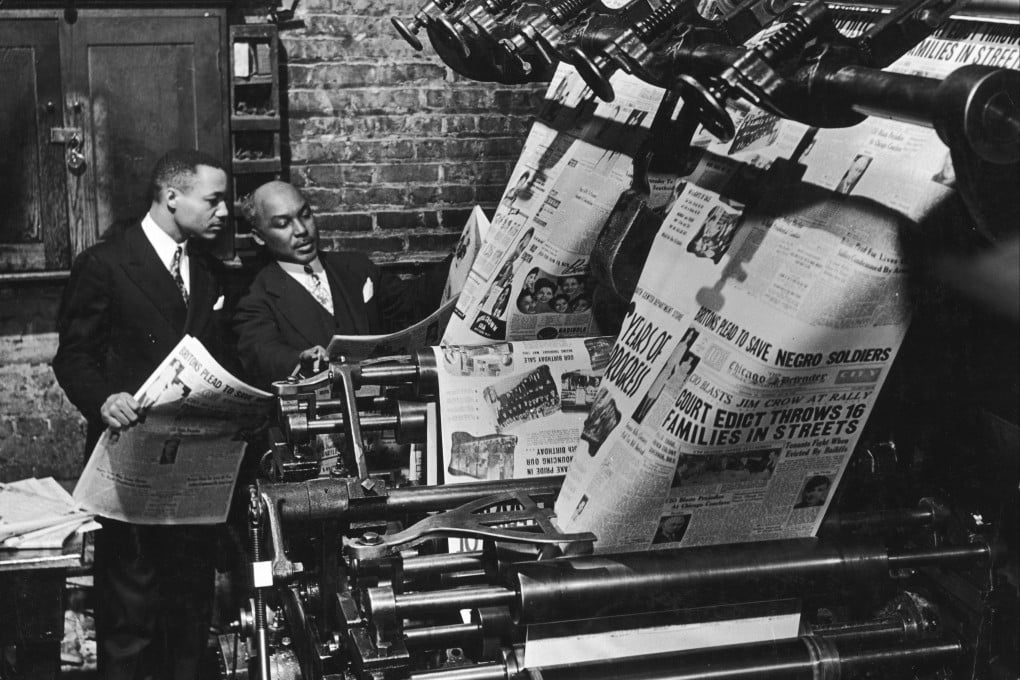Language Matters | World Press Freedom Day: what are the origins of the words ‘press’, ‘journalist’ and ‘media’?
- The word ‘press’ entered English parlance via French and has been used to mean journalists collectively since 1868
- From the 17th century, a journal became a daily record of events or matters kept for private or official use

“Stop press! Stop the presses!” No, not a call to inhibit journalism, but idiomatic exclamations to delay the release of news, usually when significant new information is discovered, the phrases originating in the printed news industry.
A press, after all, is an instrument or machine that exerts pressure – examples include for torture, or extracting juice or oil – the word coming from the French pres (with other senses including the crowding of people). The specific meaning of leaving the impression of type on paper, i.e. a printing press, developed in the 1530s, extending in the 1570s to the place of business centred on printing, and from around 1680 to publishing generally (e.g. freedom of the press). Use of “the press” to mean journalists collectively is attested from 1868.
“Journal” entered Middle English from the Anglo-French jurnal, from the Old French jornel, and ultimately from the late Latin diurnāl-em “of or belonging to a day”. The earliest reference of such a term in the dissemination of news is found in circa 59BC Rome’s Acta Diurna, a daily circular in which news was recorded and hung throughout the city.
In English, a journal in the Middle Ages comprised books of daily devotions for appointed times of the day, and from the 16th century encompassed information of daily stages of routes and records of travels – both meanings now obsolete. From the 17th century, a journal became a daily record of events or matters kept for private or official use. About a century later, the meaning of a daily newspaper or similar periodical developed.
“Journalist” and “journalism” were formed in the 17th and 19th centuries with -ist and -ism suffixes respectively added to journal, while “journo”, informal for journalist, originated in Australia in the 1940s.
These days we speak of the media, which encompasses newspapers, magazines, radio, television, the internet – such usage having taken off at the end of the 1920s, likely abstracted from “mass media”, a technical term in the advertising industry. “Media” is the plural of the Latin medium “middle, centre, intermediate”, here denoting an intermediary, specifically a channel of mass communication.
